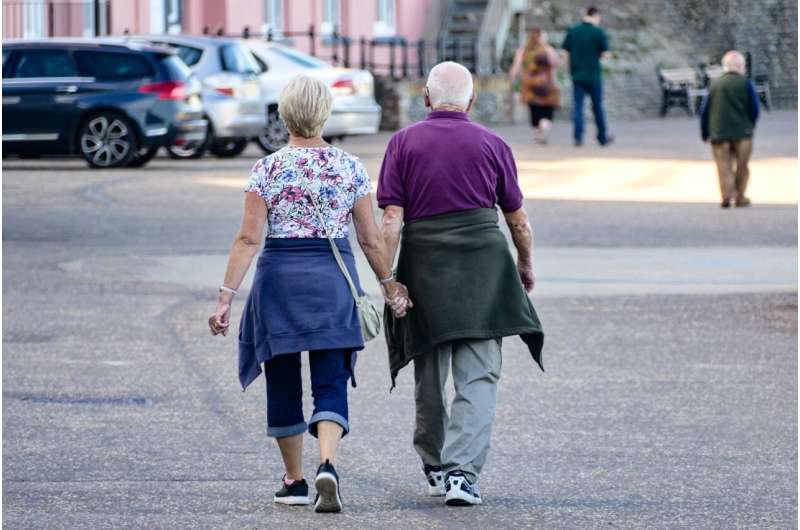This article has been reviewed according to Science X's editorial process and policies. Editors have highlighted the following attributes while ensuring the content's credibility:
fact-checked
trusted source
proofread
Older adults experiencing social isolation are more likely to smoke

Aging brings wisdom and experience; however, for some individuals getting older can also mean health challenges, loss of friends, and decreased mobility, leading to social isolation. Both the U.S. Surgeon General and the National Academy of Medicine have issued recent warnings about the growing public health concern of social isolation and loneliness and its association with premature death among the elderly.
Not having anyone to call (via phone or online) or not interacting with people in the community are forms of social isolation, which affects nearly a fifth of U.S. adults over the age of 65. There are different levels of social isolation—from having some communication with others and only sometimes feeling isolated or lonely to the more extreme: zero connections with other people. A new study by Associate Professor Gilbert Gimm and associates found social isolation to be a risk factor for smoking.
The study found that 17.1% of older adults in the U.S. were socially isolated and more likely to smoke compared to those with social interactions with others in the community. Additionally, older adults with higher levels of depression and anxiety had greater odds of smoking.
"Older adults with limited or no social connections are more likely to smoke, which in turn leads to health challenges and premature death. Reducing social isolation in older adults can help to improve their health and life expectancy," said Gimm.
Older adults who experienced moderate social isolation, such as only being able to connect via phone, but never seeing anyone in person, were twice as likely to smoke as someone who is socially connected. Older adults who had severe social isolation, such as no connection or interaction with anyone in the community, were five times as likely to smoke as those who were socially connected.
Researchers say it is not yet clear whether smoking behavior leads to social isolation or if social isolation leads to smoking, but both factors increase the risk of health challenges and premature death.
For this study, researchers analyzed data from a national sample of 8,136 adults aged 65 or older who participated in the National Health and Aging Trends Study.
"Examining the Association of Social Isolation and Smoking in Older Adults" was published in Journal of Applied Gerontology in June 2023. Former Mason Ph.D. student Mary Louise Pomeroy and Thomas K.M. Cudjoe from Johns Hopkins University were co-authors of the study.
More information: Examining the Association of Social Isolation and Smoking in Older Adults, Journal of Applied Gerontology (2023). DOI: 10.1177/07334648231180





















